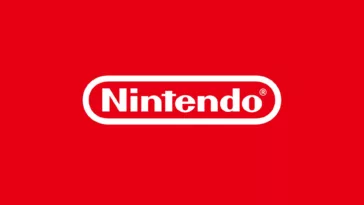The wave of layoffs sweeping the games industry shows no signs of abating. Ubisoft's recent decision to cut a further 45 jobs come amidst a slew of major downsizings and studio closures. From Smilegate Barcelona's shutdown to Nintendo's contractor cuts and Sega's sale of Relic Entertainment, the industry is facing a crisis that's putting jobs and innovative projects at risk.
Ubisoft Continues Cost-Cutting Measures with 45 More Layoffs: Is the Gaming Giant in Trouble?
Ubisoft, the iconic French game publisher behind franchises like Assassin's Creed, Far Cry, and Just Dance, has confirmed yet another round of layoffs. This time, 45 employees across its Global Publishing and Asia-Pacific divisions are losing their jobs. The company cites the need to "streamline operations" and "adapt them to the market evolution" as the driving force behind this decision.
A Trend of Downsizing

This isn't the first time Ubisoft has resorted to layoffs in recent months. Back in November 2023, the publisher shed 124 positions, primarily within its Canadian studios. This latest move underscores the challenges facing the company – and the broader games industry.
The games industry is currently reeling from a wave of mass layoffs. In 2023 alone, an estimated 10,500 jobs were lost. Sadly, 2024 appears to be continuing this grim trend, with approximately 8,000 planned job cuts confirmed in the first three months alone. Major companies like Microsoft, Riot Games, and even Ubisoft itself have all engaged in downsizing efforts.
Why the Layoffs?
Several factors likely contribute to this pervasive trend:
- Economic Uncertainty: Rising inflation, fears of recession, and geopolitical tensions create market instability, forcing companies to be cautious.
- Post-Pandemic Slowdown: The gaming boom during the height of the COVID-19 pandemic was unsustainable, resulting in a readjustment as people return to normal routines.
- Shifting Market Preferences: Rapid changes in consumer preferences and the increasing popularity of lower-cost mobile and subscription-based gaming models put pressure on traditional AAA game publishers.
Ubisoft's Struggles
While industry-wide issues play a role, Ubisoft's layoffs suggest some deeper, company-specific problems:
- Project Delays and Cancellations: Ubisoft has suffered setbacks with titles like "Skull & Bones" and reportedly canceled several unannounced projects. These missteps cost money and damage investor confidence.
- Management and Workplace Issues: Reports of Ubisoft's troubled workplace culture, including allegations of harassment and discrimination, have tarnished the company's image, potentially affecting talent acquisition and morale.
What Does the Future Hold for Ubisoft?

These layoffs raise concerns about Ubisoft's future direction. The focus on "streamlining" could signal that Ubisoft is shifting its focus from taking big creative risks toward more established, reliable revenue streams. While a pragmatic survival tactic, it could lead to a less innovative and risk-taking Ubisoft.
Ultimately, the success of Ubisoft's cost-cutting measures depends on whether they can reinvigorate its development pipeline and restore its reputation. The gaming industry is highly competitive, and a weakened Ubisoft might struggle to keep pace with its rivals.
Layoff Crisis Continues: Industry Leaders Face Major Cuts
Ubisoft's layoffs, unfortunately, are not an isolated incident. The games industry is facing a severe crisis, with major job losses across studios of all sizes:
- Smilegate Barcelona Closure: Smilegate Barcelona's closure, just four years after its founding, is a stark reminder of the harsh realities facing even promising new ventures. The studio, backed by the Korean Crossfire developer Smilegate, was reportedly working on an ambitious open-world AAA console title. However, according to industry veteran Stephane Blais, who previously held leadership positions at Ubisoft and Eidos Montreal, the project has been scrapped, and the studio itself is shutting down. This news raises questions about the viability of ambitious undertakings in the current economic climate. Established studios with proven track records are struggling, so the risks for young studios attempting to break into the AAA space are even greater. The closure of Smilegate Barcelona, unfortunately, may not be an isolated incident, and its story serves as a cautionary tale for other aspiring developers.
- Nintendo Contractor Cuts: Around 120 contractors in Nintendo's testing department are facing job losses, with others reportedly being given full-time positions. This restructuring suggests a potential shift in Nintendo's development strategy. While the exact reasons remain undisclosed, it could be linked to streamlining operations for the upcoming Switch successor. The new console is rumored to launch in early 2025, and Nintendo might be aiming for a more efficient testing process to ensure a smooth rollout. It's also possible that Nintendo is seeking to build a more stable and experienced in-house testing team to handle the potential complexities of the next-generation hardware. Regardless of the specific reasons, this news highlights the pressure Nintendo faces as it prepares for a crucial transition in its hardware offerings.
- Sega Sells Relic & Cuts 240 Europe-Based Jobs: The sale of Relic Entertainment, known for its acclaimed strategy games like Company of Heroes and Age of Empires, marks a significant blow to Sega's European development arm. This decision comes on the heels of repeated layoffs at Sega's European studios throughout 2023 and 2024. In May 2023, Relic itself suffered job cuts, and last September, Sega Europe saw further downsizing following project cancellations. The latest round of layoffs hits Creative Assembly, Sega Europe, and Sega Hardlight, further shrinking Sega's European presence. This pattern of divestment and downsizing raises concerns about Sega's long-term commitment to its European operations and its ability to compete effectively in the global market.
An Industry in Turmoil
These recent layoffs amplify the ongoing crisis within the gaming industry. It's estimated that over 10,500 jobs were lost in 2023, and in just the first few months of 2024, thousands more cuts have been announced. This trend creates a climate of fear and uncertainty for developers, as highlighted by the GDC State of the Game Industry survey.
The impact of these layoffs extends beyond the individuals directly affected. With talent leaving the industry, and studios potentially becoming more risk-averse in their project choices, the future of innovative game development hangs in the balance.
source: VGC
We'll keep you updated on further developments, and continue to analyze the far-reaching consequences of this crisis.




